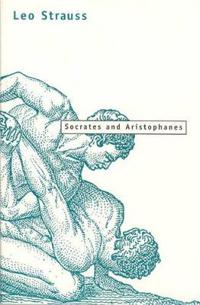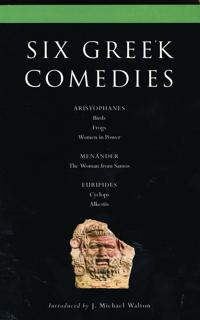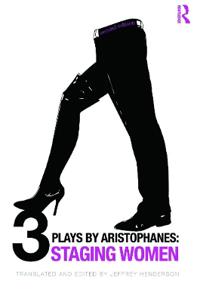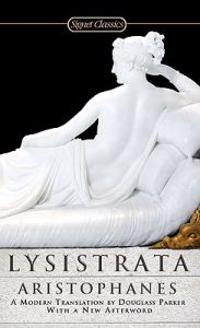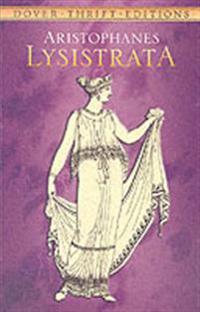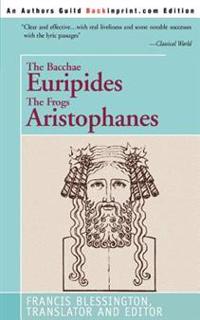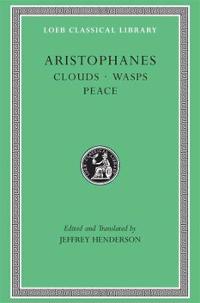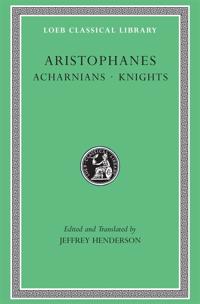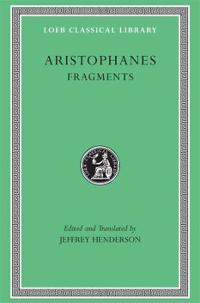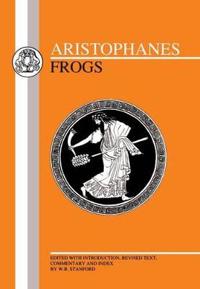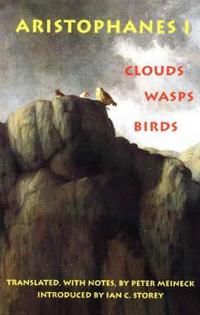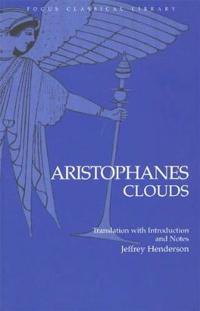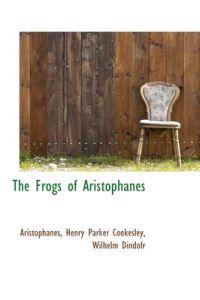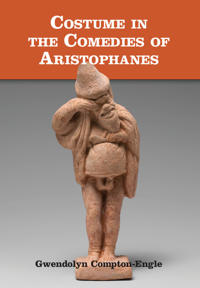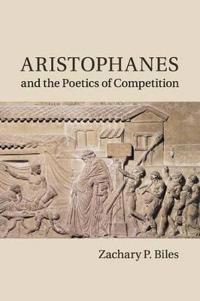Socrates and Aristophanes
ISBN: 9780226777191 - UTGIVEN: 1996-11In one of his last books, Leo Strauss examines the confrontation between Socrates and Aristophanes in Aristophanes' comedies. Looking at eleven plays, Strauss shows that this confrontation is essentially one between poetry and philosophy, and that poetry emerges as an autonomous wisdom capable of ri[...]
Six Classical Greek Comedies (Häftad)
avAristophanes
ISBN: 9780413771308 - UTGIVEN: 2002-08Six wide ranging classic plays with introduction by the editor The comedies of the Athenian theatre not only lie at the root of Western drama, they also offer a unique insight into everyday life in ancient Greece. This selection of six wide ranging plays includes the comic fantasies of Aristophanes,[...]
Three Plays by Aristophanes (Storpocket)
ISBN: 9780415871310 - UTGIVEN: 2010-01These three plays by the great comic playwright Aristophanes (c. 446-386 BCE), the well-known Lysistrata, and the less familiar Women at the Thesmophoria and Assemblywomen, are the earliest surviving portrayals of contemporary women in the European literary tradition. These plays provide a unique gl[...]
Lysistrata (Pocket)
avAristophanes, Judith Fletcher
ISBN: 9780451531247 - UTGIVEN: 2009-04In Lysistrata a band of women tap into the awesome power of sex in order to end a war.
@PussyWhip What's something we can leverage against men? What's the one thing we're good for again? It's on the tip of my tongue.
From "Twitterature: The World's Greatest Books in Twenty Tweets or Less"[...]Lysistrata (Häftad)
avAristophanes
ISBN: 9780486282251 - UTGIVEN: 199501Translated and edited by Matt Neuburg, this edition of Lysistrata for performance and study is extensively annotated and includes an introduction explaining of Aristophanic comedy: its performance, structure, and development. Also included are a list of principle dates in the life of Aristophanes as[...]
Compl Plays of Aristophanes (Häftad)
avMoses Hades
ISBN: 9780553213430 - UTGIVEN: 1920-01Background information and brief introductions accompany eleven satiric plays by the fifth century B.C. playwright, in an anthology that contains such classic and inventive works as The Birds, The Frogs, and Lysistrata. Reissue.[...]
Clouds / Wasps / Peace (Häftad)
avAristophanes
ISBN: 9780674995376 - UTGIVEN: 199812Aristophanes of Athens (ca. 446-386 BC), one of the world's great comic dramatists, has been admired since antiquity for his wit and fantasy, language, and satire of the social, intellectual and political life of Athens at its height. He wrote at least 40 plays, of which 11 have survived complete. I[...]
Aristophanes
ISBN: 9780674995673 - UTGIVEN: 1998-09Aristophanes of Athens (ca. 446-386 b.c.), one of the world's great comic dramatists, has been admired since antiquity for his wit and fantasy, language, satire of the social, intellectual and political life of Athens at its height. He wrote at least 40 plays, of which 11 have survived complete. In [...]
Aristophanes (Inbunden)
ISBN: 9780674996151 - UTGIVEN: 200802The eleven plays by Aristophanes that have come down to us intact brilliantly illuminate the eventful period spanned by his forty-year career, beginning with the first production in 427 B.C. But the Athenians knew much more of his work: over forty plays by Aristophanes were read in antiquity, of whi[...]
Venom in Verse: Aristophanes in Modern Greece (Övrig)
avGonda A.H.Van Steen
ISBN: 9780691009568 - UTGIVEN: 2000-02-28Aristophanes has enjoyed a conspicuous revival in nineteenth - and twentieth-century Greece. Here, Gonda Van Steen provides the first critical analysis of the role of the classical Athenian playwright in modern Greek culture, explaining how the sociopolitical 'venom' of Aristophanes' verses remains [...]
Aristophanes (Häftad)
avJames Robson
ISBN: 9780715634523 - UTGIVEN: 2009-11This accessible introduction to the work of one of the world's greatest comic writers tackles key questions posed by Aristophanes' plays, such as staging, humour, songs, obscene language, politics and the modern translation and performance of Aristophanic comedy. The book opens up exciting and conte[...]
Aristophanes
ISBN: 9780856687518 - UTGIVEN: 2003-05This volume completes the 12-volume series "The Comedies of Aristophanes", begun in 1980, and is comprised of comprehensive indexes to the preceding 11 volumes. The book is divided into three parts: "Texts and Passages", "Persons" and "General".[...]
Aristophanes I
ISBN: 9780872203600 - UTGIVEN: 1998-09Originally adapted for the stage, Peter Meineck's revised translations achieve a level of fidelity appropriate for classroom use while managing to preserve the wit and energy that led The New Yorker to judge his Clouds "The best Greek drama we've ever seen anywhere." and The Times Literary Supplemen[...]
Aristophanes' Clouds Translated With Notes and Introduction
ISBN: 9780941051248 - UTGIVEN: 1993-02This is an English translation of Aristophanes' famous comedy, Clouds, noted for its critique of philosophy, society and education. It includes essays on Old Comedy and the Theater of Dionysus, suggestions for further reading, notes on production, and a map. Focus Classical Library provides clos[...]
Lysistrata (Häftad)
avAristophanes, Germaine Greer, Phil Willmott
ISBN: 9780953675708 - UTGIVEN: 200003Lysistrata, the play's heroine persuades the women to barricade themselves inside a building, refusing to give their husbands sex until they negotiate an end to the Peloponnesian War and secure peace. She also persuades the women of Sparta,the enemy, to join her cause and refuse sex to their husband[...]
Costume in the Comedies of Aristophanes (Inbunden)
avGwendolyn Compton-engle
ISBN: 9781107083790 - UTGIVEN: 2015-04This book offers an interpretation of the handling of costume in the plays of the fifth-century comic poet Aristophanes. Drawing on both textual and material evidence from the fourth- and fifth-century Greek world, it examines three layers of costume: the bodysuit worn by the actors, the characters'[...]

